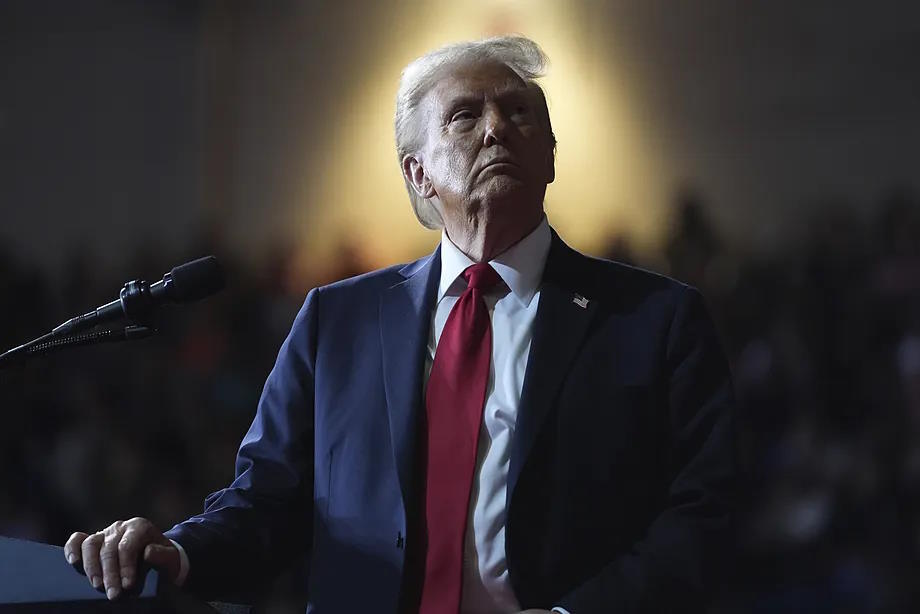Donald Trump's immigration policy has sparked speculation about who could be the candidates for the positions of Secretary of Homeland Security, Attorney General (equivalent to Secretary of Justice), and Secretary of State, who would bear the weight of those decisions.
What is certain, as announced on Thursday, is the selection of Susie Wiles, the campaign's shadow director, as his Chief of Staff in the White House. She will be the first female Chief of Staff, one of the most important positions.
In the Secretary of State speculation, Florida Senator Marco Rubio stands out, who would likely get the position as a consolation prize after losing the vice presidency, a position for which he was a finalist but lost to Vance due to the influence of Don 'junior' and his brother Eric. Rubio is a Secretary of State that all of Europe would sign for, as he represents the closest to an establishment member one can expect in Trumpism. His stance would be tough on Cuba - his family's country of origin - and Venezuela, but he is in favor of maintaining the US alliance system. The extent of his power in a government marked by isolationists and with a president and vice president who are clearly pro-Putin remains to be seen. An interesting detail about Rubio: although he dislikes speaking Spanish, he is fully bilingual.
Other potential candidates for the position would be much tougher on Europe. The main contender against Rubio is Richard Grenell, who during his three years as Trump's ambassador to Germany managed to irritate everyone in the country, as he seemingly confused his mission as the US representative in Berlin with that of overthrowing Angela Merkel's government. Grenell stated that his mission in Germany was to "help conservative parties in Europe" and expressed admiration for the Austrian Chancellor, Sebastian Kurz, in contrast to Merkel. If he had represented any other country, Berlin would likely have expelled him for all those glorious statements.
If Grenell does not become Secretary of State, he may become an advisor to Trump, perhaps on the National Security Council, and will likely handle negotiations with Russia on Ukraine, which does not bode well for the latter country. Senator Bill Hagerty, who served as ambassador to Japan, is another potential candidate, although due to his inclination towards trade protectionism, he could be Secretary of Commerce or Trade Representative (a similar position, with many caveats, to that of Minister of International Trade). Also in the speculation is former Trump National Security Advisor Robert O'Brien, who, along with Rubio, is the most centrist on the list.
For the position of Attorney General, the ultranationalist Stephen Miller is mentioned, likely the toughest hawk on immigration, who was the architect of the policy of separating immigrant children from their mothers and fathers in 2018, resulting in several hundred minors losing - perhaps permanently - contact with their parents. Miller, who publicly supports Trump's statement that "immigrants are poisoning the blood of the people," is so controversial that he may not be appointed to avoid Senate confirmation. However, he will undoubtedly be the person in charge of all immigration policy.
Other names circulating for that position are as or more controversial than Miller. One is Aileen Cannon, the Florida judge who dismissed the case against Trump for the theft of state secrets when he left the White House. Her appointment would be an obvious favor to the president, and it is also unclear if Cannon has the qualifications to lead the Department of Justice. Other names being mentioned include Mike Davis, who has posted on social media advocating for putting journalists in 'gulags' - the prisons for political prisoners in the Soviet Union - and immigrant children "in cages." As for the Department of Homeland Security, all the names in the speculation, such as Tom Homan, Chad Wolff, or Mark Green, have experience primarily in combating illegal immigration and are also seen as very close to the president-elect's views.
In the healthcare sector, Robert Kennedy has been a prominent figure for some time. Initially considering running as an independent candidate, he later withdrew and supported Trump. He is the son of the Attorney General and presidential candidate of the same name, who was assassinated in 1968 during his campaign, and the nephew of President John F. Kennedy. He is an anti-vaccine activist and has suggested that chemicals in drinking water are making Americans homosexual, among some of his controversial ideas.
